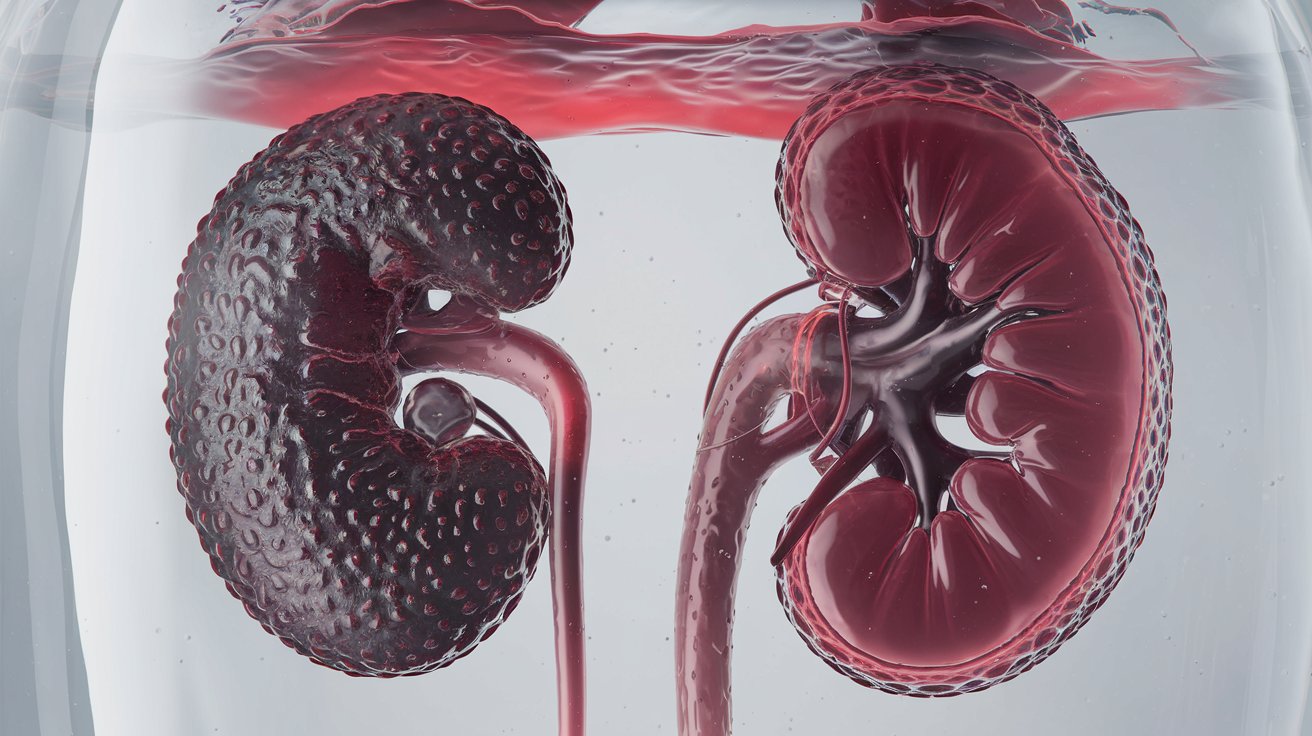
D-Plus Hemolytic Uremic Syndrome (HUS) is a rare but serious condition that affects the blood and kidneys. It often follows an infection with certain strains of E. coli bacteria. HUS can cause severe complications, including kidney failure and neurological issues. Understanding this condition is crucial for early detection and treatment. In this blog post, we will explore 25 essential facts about D-Plus Hemolytic Uremic Syndrome to help you grasp its causes, symptoms, and treatments. Whether you're a student, parent, or healthcare professional, these facts will provide valuable insights into this complex syndrome. Let's dive into the world of HUS and learn more about its impact on health.
Key Takeaways:
- D-Plus Hemolytic Uremic Syndrome (HUS) is a rare but serious condition triggered by certain E. coli bacteria. It can lead to kidney failure and other severe complications, especially in children under 5.
- Early diagnosis and multidisciplinary care are crucial for managing D-Plus HUS. Treatment involves supportive care, including hydration, blood transfusions, and close monitoring for long-term kidney health.
What is D-Plus Hemolytic Uremic Syndrome (HUS)?
D-Plus Hemolytic Uremic Syndrome (HUS) is a rare but serious condition that affects the blood and blood vessels. It often follows an infection in the digestive system caused by certain strains of E. coli bacteria. This syndrome can lead to kidney failure and other severe complications.
- D-Plus HUS is most commonly triggered by an infection with Shiga toxin-producing E. coli (STEC).
- The term "D-Plus" refers to the presence of diarrhea preceding the onset of HUS.
- Children under 5 are the most susceptible to developing D-Plus HUS.
- Symptoms often include bloody diarrhea, abdominal pain, vomiting, and fever.
- The kidneys are the primary organs affected, leading to acute kidney injury.
- HUS can cause a decrease in red blood cells, leading to anemia.
- Platelet count drops significantly, increasing the risk of bleeding.
- High blood pressure is a common complication due to kidney damage.
- Neurological symptoms such as seizures and confusion can occur in severe cases.
- Treatment often involves supportive care, including hydration and blood transfusions.
How is D-Plus HUS Diagnosed?
Diagnosing D-Plus HUS involves a combination of clinical evaluation, laboratory tests, and sometimes imaging studies. Early diagnosis is crucial for effective management and better outcomes.
- Blood tests are used to check for anemia, low platelet count, and kidney function.
- Stool samples help identify the presence of Shiga toxin-producing E. coli.
- Urine tests can reveal protein or blood, indicating kidney damage.
- Imaging studies like ultrasound may be used to assess kidney size and function.
- A thorough medical history and physical examination are essential for diagnosis.
Treatment and Management of D-Plus HUS
Managing D-Plus HUS requires a multidisciplinary approach, often involving pediatricians, nephrologists, and other specialists. The focus is on supportive care and addressing complications.
- Intravenous fluids are administered to maintain hydration and electrolyte balance.
- Blood transfusions may be necessary to treat severe anemia.
- Dialysis might be required if kidney function is severely compromised.
- Medications to control blood pressure are often prescribed.
- Antibiotics are generally avoided as they can worsen the release of toxins from bacteria.
Long-term Outlook for D-Plus HUS Patients
The long-term prognosis for patients with D-Plus HUS varies. While many recover fully, some may experience lasting effects, particularly on kidney function.
- Most children recover completely with appropriate treatment.
- Chronic kidney disease can develop in some cases, requiring ongoing medical care.
- Regular follow-ups with healthcare providers are crucial to monitor kidney function.
- Lifestyle modifications such as a healthy diet and regular exercise can help manage long-term health.
- Research is ongoing to better understand D-Plus HUS and improve treatment options.
Final Thoughts on D-Plus Hemolytic Uremic Syndrome
D-Plus Hemolytic Uremic Syndrome (HUS) is a serious condition that requires awareness and understanding. Knowing the symptoms, causes, and treatments can make a significant difference in managing this illness. From its association with E. coli infections to the importance of early diagnosis, every fact about D-Plus HUS plays a crucial role in patient care. Staying informed helps in recognizing early signs, leading to timely medical intervention. Whether you're a parent, caregiver, or just someone interested in medical facts, understanding D-Plus HUS can empower you to take proactive steps. Always consult healthcare professionals for accurate diagnosis and treatment options. Knowledge is power, and in the case of D-Plus HUS, it can be life-saving. Stay informed, stay vigilant, and prioritize health.
Frequently Asked Questions
Was this page helpful?
Our commitment to delivering trustworthy and engaging content is at the heart of what we do. Each fact on our site is contributed by real users like you, bringing a wealth of diverse insights and information. To ensure the highest standards of accuracy and reliability, our dedicated editors meticulously review each submission. This process guarantees that the facts we share are not only fascinating but also credible. Trust in our commitment to quality and authenticity as you explore and learn with us.
